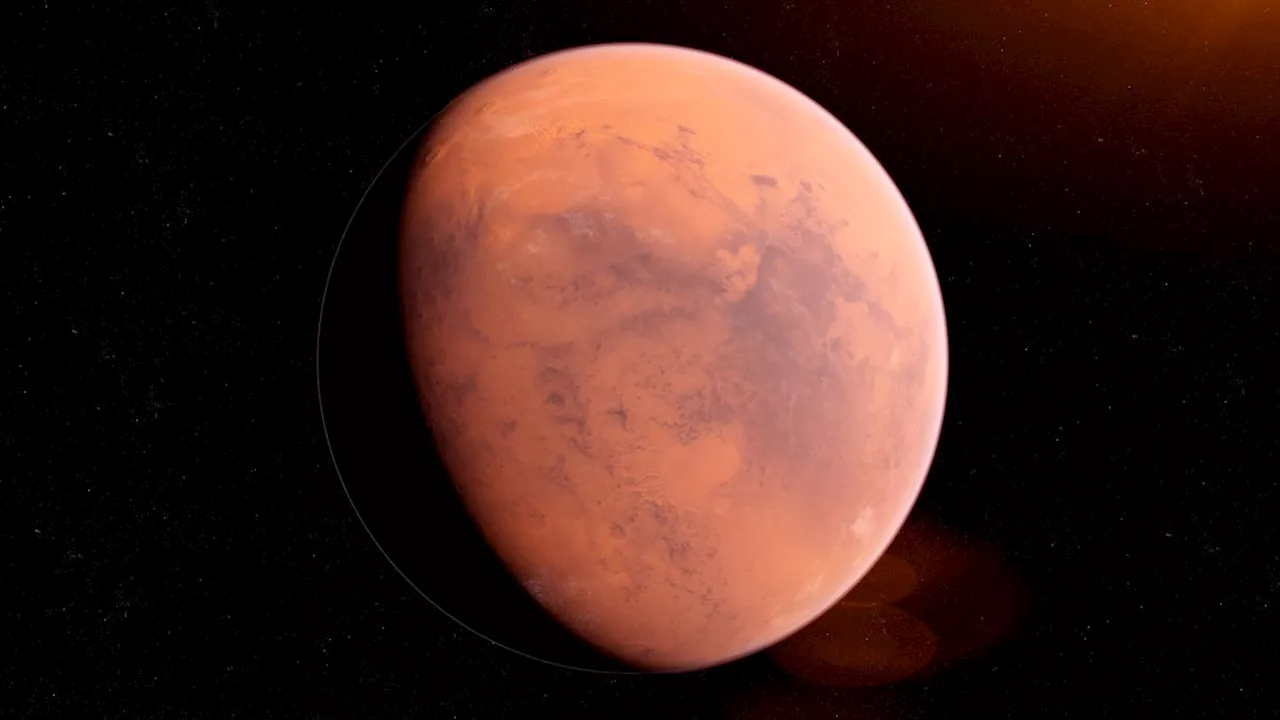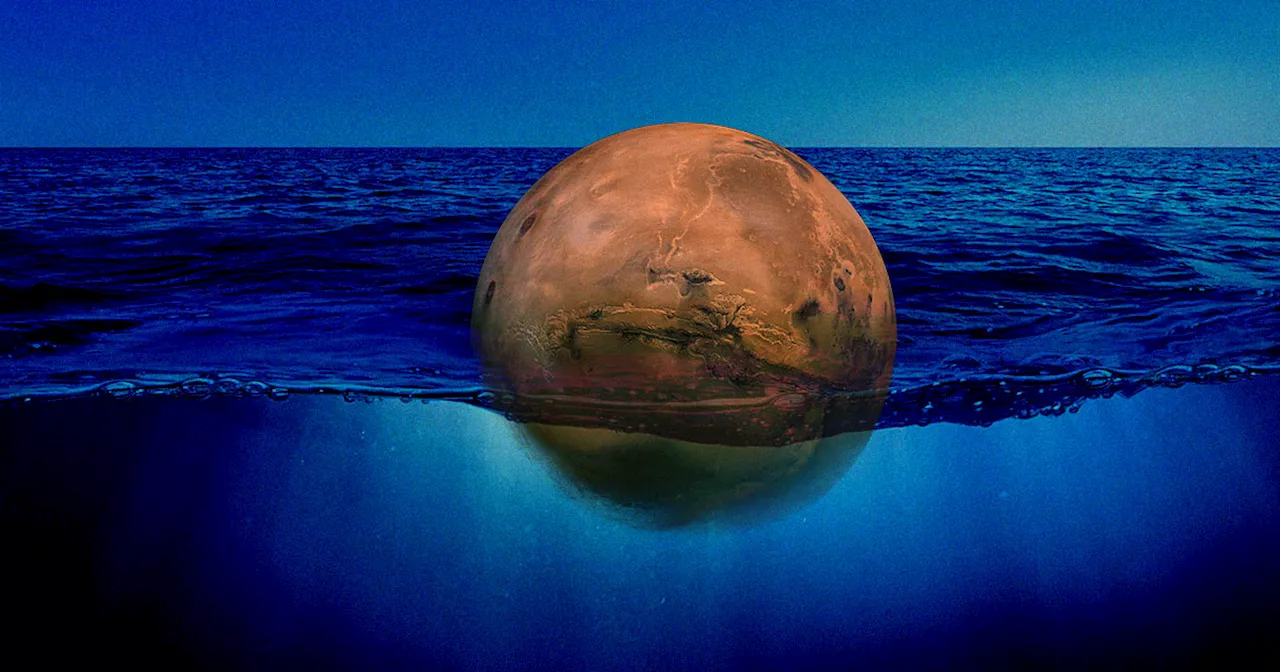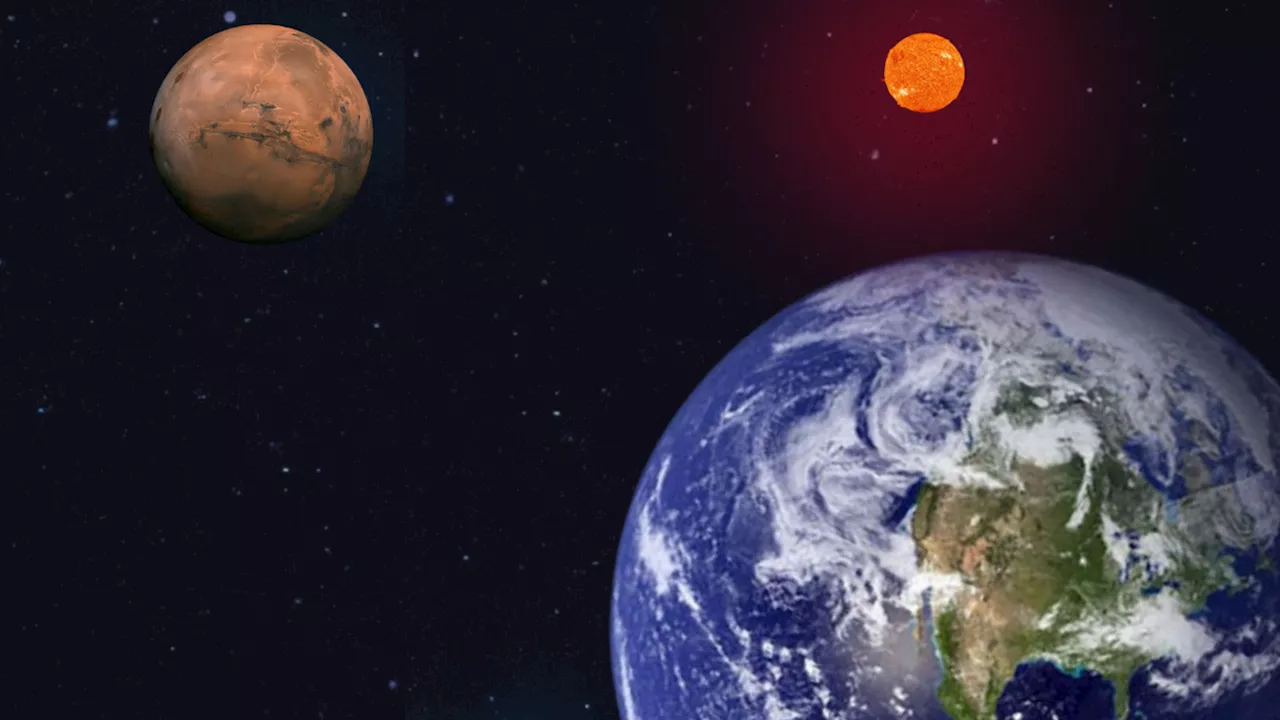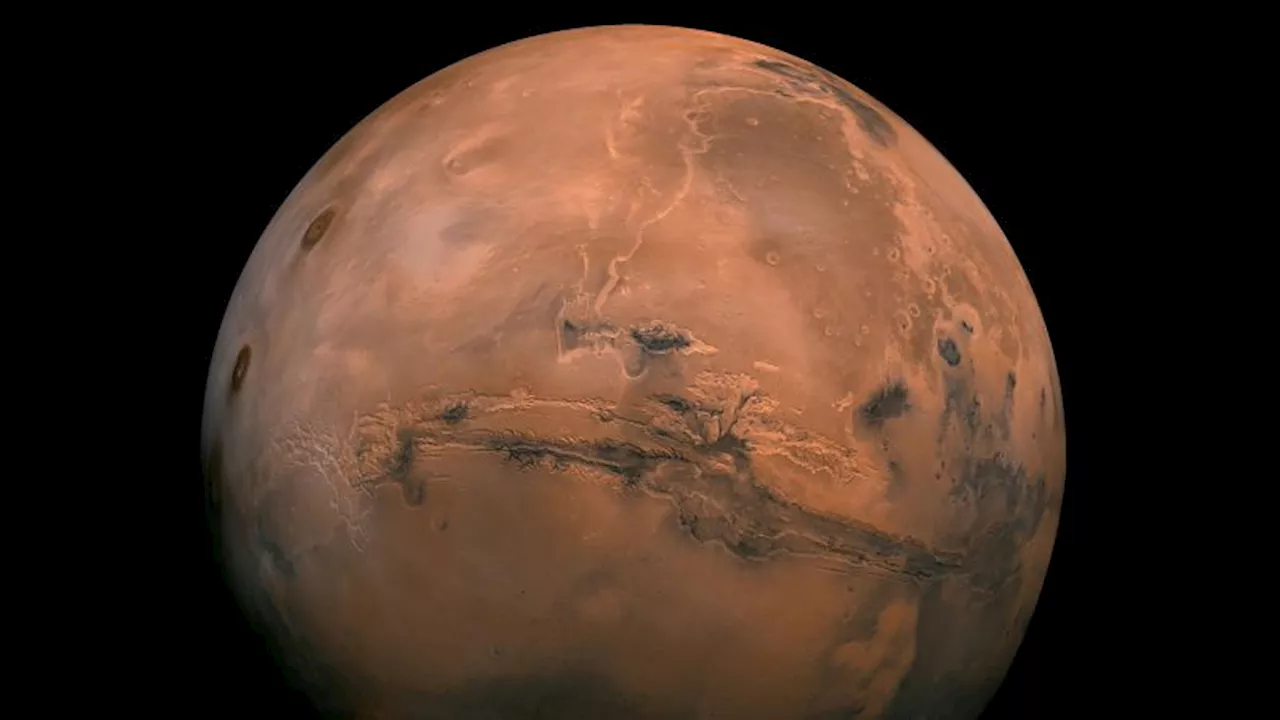An analysis of deep-sea drill cores suggests that Mars may have enough gravitational influence to shift sediment within Earth's oceans on a 2.4-million-year cycle
The gravitational tug of Mars may be strong enough to stir up Earth’s ocean, shifting its sediments as part of a 2.4-million-year climate cycle, researchers claim.
It has long been accepted that wobbles in Earth’s orbit around the sun influence the planet’s climate, with these Milankovitch cycles operating on periods measured in thousands of years. Now,at the University of Sydney and her colleagues say they have found a 2.4-million-year “Grand Cycle”, which they believe is driven by Mars and has had dramatic impacts on currents in Earth’s oceans for at least 40 million years.
According to the team, absences or hiatuses in the sediment deposition record line up with times when Mars’s gravity exerts maximum force on Earth, subtly impacting our planet’s orbital stability. This changes solar radiation levels and climate, manifesting as stronger currents and eddies in the oceans., also at the University of Sydney, acknowledges that the distance between Earth and Mars is so vast that it is hard to conceive of any significant gravitational force being exerted.
“I’m sceptical of the link to Mars, given its gravitational pull on Earth is so weak – at only about one one-millionth of that of the sun,” he says. “Even Jupiter has a stronger gravitational field for Earth.” England also points out that even if Mars is having an influence, it is nothing compared with human-driven climate change. “Greenhouse gas forcing is like a sledgehammer in comparison, so this has no bearing on present-day climate, where we are seeing melting ice sheets reduce the ocean overturning circulation.”
United Kingdom Latest News, United Kingdom Headlines
Similar News:You can also read news stories similar to this one that we have collected from other news sources.
 Every 2.4 million years, Mars tugs on Earth so hard it changes the ocean floorEmily is a health news writer based in London, United Kingdom. She holds a bachelor's degree in biology from Durham University and a master's degree in clinical and therapeutic neuroscience from Oxford University. She has worked in science communication, medical writing and as a local news reporter while undertaking journalism training.
Every 2.4 million years, Mars tugs on Earth so hard it changes the ocean floorEmily is a health news writer based in London, United Kingdom. She holds a bachelor's degree in biology from Durham University and a master's degree in clinical and therapeutic neuroscience from Oxford University. She has worked in science communication, medical writing and as a local news reporter while undertaking journalism training.
Read more »
 Mars gravity may be shaking Earth’s ocean once every 2.4 million yearsA new study has uncovered a 2.4-million-year cycle associated with deep-sea currents, and the orbits of Earth and Mars.
Mars gravity may be shaking Earth’s ocean once every 2.4 million yearsA new study has uncovered a 2.4-million-year cycle associated with deep-sea currents, and the orbits of Earth and Mars.
Read more »
 Mars' Gravity Causing Huge Whirlpools in Earth's Ocean, Scientists SayScience and Technology News and Videos
Mars' Gravity Causing Huge Whirlpools in Earth's Ocean, Scientists SayScience and Technology News and Videos
Read more »
 Scientists propose new theory that explains sand ripples on Mars and on EarthSand ripples are symmetrical. Yet wind -- which causes them -- is very much not. Furthermore, sand ripples can be found on Mars and on Earth. They would be even more fascinating if the same effect found on Mars could be found here on Earth as well.
Scientists propose new theory that explains sand ripples on Mars and on EarthSand ripples are symmetrical. Yet wind -- which causes them -- is very much not. Furthermore, sand ripples can be found on Mars and on Earth. They would be even more fascinating if the same effect found on Mars could be found here on Earth as well.
Read more »
 Mars attracts: How the Red Planet influences Earth's climate and seasRobert Lea is a science journalist in the U.K. whose articles have been published in Physics World, New Scientist, Astronomy Magazine, All About Space, Newsweek and ZME Science. He also writes about science communication for Elsevier and the European Journal of Physics. Rob holds a bachelor of science degree in physics and astronomy from the U.K.
Mars attracts: How the Red Planet influences Earth's climate and seasRobert Lea is a science journalist in the U.K. whose articles have been published in Physics World, New Scientist, Astronomy Magazine, All About Space, Newsweek and ZME Science. He also writes about science communication for Elsevier and the European Journal of Physics. Rob holds a bachelor of science degree in physics and astronomy from the U.K.
Read more »
 Mars could be driving ‘giant whirlpools’ in the Earth’s deep oceans, new study findsMars may be around 140 million miles away from Earth, but the red planet is influencing our oceans, according to new research.
Mars could be driving ‘giant whirlpools’ in the Earth’s deep oceans, new study findsMars may be around 140 million miles away from Earth, but the red planet is influencing our oceans, according to new research.
Read more »
